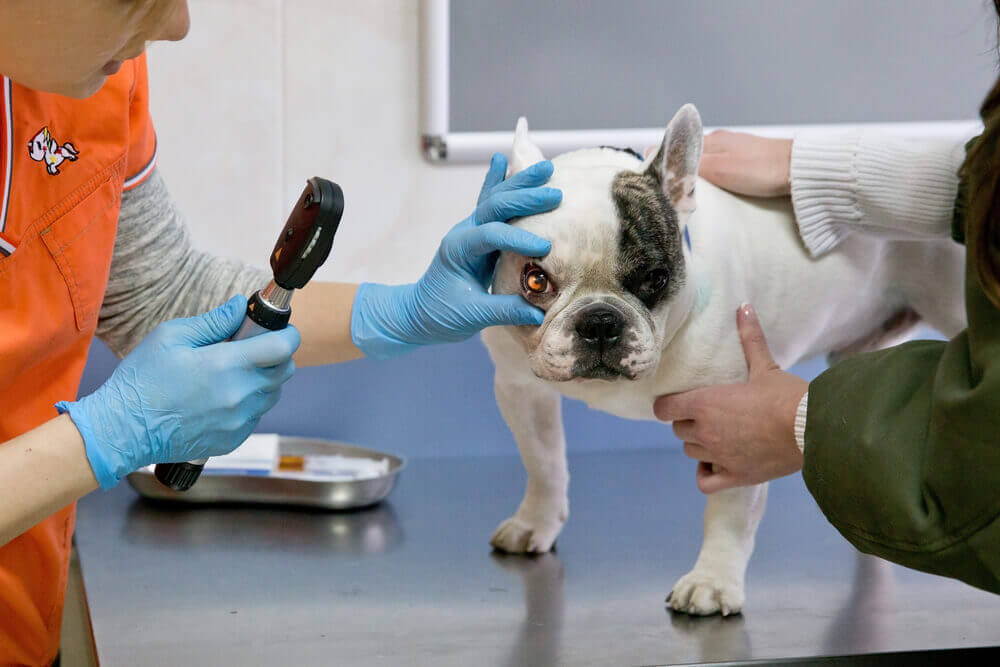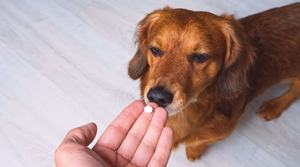Conjunctivitis - better known as pink eye - is a painful, very annoying eye problem that lots of humans are unfortunately far too familiar with. But the fact is that dogs can get it too, and for them, it can be every bit as unpleasant and painful.
But how do pups end up will pink eye, and how can you, as a pet parent, help them if they do? The answer to how do dogs get conjunctivitis, and other related questions, are what we are going to take a closer look at here today.
What is Conjunctivitis in Dogs?
Conjunctivitis is an infection of the mucous membrane that covers your dog's eye and eyelids, also known as the conjunctiva. The conjunctiva is a mucous membrane that is comparable to the lining of the nose or mouth and serves as the eye's protective shield against infections and foreign objects.
Conjunctivitis, sometimes known as 'pink eye,' is a disorder that occurs when this membrane gets infected or inflamed.
The three most common types of conjunctivitis (pink eye) in dogs are: allergic, viral and bacterial conjunctivitis.
Although common in all pet dogs, pink eye is is a common health problem in small dogs, house pets and breeds with prominent eyes such as Shih Tzus, Bulldogs, Cocker Spaniels, Schnauzers and Lhasa Apsos to name but a few.
What Can Cause Conjunctivitis in Dogs?

Conjunctivits or "Pink eye" can spread from one eye to another or other dogs as well.
As a human, you might know that you can get pink eye from something as simple as getting a foreign object stuck under a contact lens, or from poking yourself in the eye with a mascara wand and causing a lesion that becomes infected.
You can also get conjunctivitis if you share those kinds of things with others who have it, or even after very close contact with them that results in a transfer of infected fluid (which is why pink eye can be such a problem in schools.)
But how about dogs? How do dogs get conjunctivitis?
Viral infections and eye injuries are the most common causes of conjunctivitis in dogs, as is the case for humans.
However, conjunctivitis in dogs can have other causes, or may even be a sign of a more serious underlying condition.
Other causes of pink eye in pups can include any of the following:
- Dust, dirt, wind, chemicals or debris
- Conjunctival parasites and eyelid parasites
- Bacteria such as Staphylococcus spp and Keratoconjunctivitis siccaacterial
- A virus such as canine distemper virus
- Tear duct inflammation
- Dog allergies
- Tumors of the eyelids and the eyeball
- Allergic conjunctivitis
Take Note
Conjunctivitis can spread from one eye to another or other dogs as well.
What Does Conjunctivitis in Dogs Look Like?
Dogs, especially active ones who like to play rough at the dog park, may pick up little injuries all the time, including getting poked in the eye by a playmate's stray claw or a branch.
And some dogs are more prone to general eye redness than others, so, what does conjunctivitis in dogs look like?
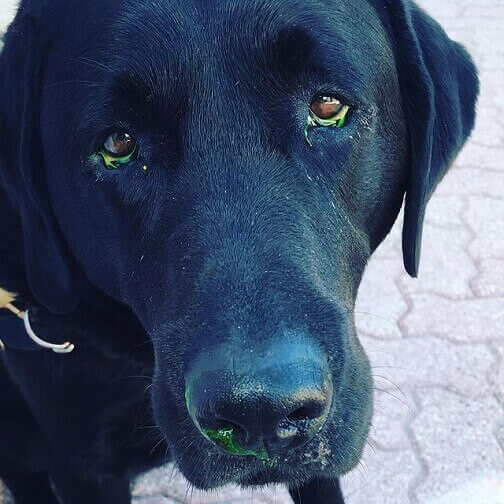
Green or yellow eye discharge can be a sign of conjunctivitis. Kim McLelland/Instagram
Because every dog is different, the signs and symptoms that your pup has conjunctivitis will be unique to them, but a clear or greenish discharge from the eye, as well as redness in the white of the eyes and reddish or swollen eyelids or the area surrounding the eye, are all signs of conjunctivitis in dogs.
When it comes to redness there may also be other causes, however, you should still get your pup's eye checked out by their vet as soon as possible.
Other signs to watch out for are: squinting and excessive blinking, and pawing or rubbing of the eyes.
How Serious is Conjunctivitis in Dogs?
If it is caught quickly, and treated promptly, simple conjunctivitis in dogs - that is, conjunctivitis without an underlying condition involved - is as relatively harmless as it is in humans.
In rare circumstances it can, however, lead to scarring of the eye that causes vision problems and even blindness.
If the condition is merely a symptom of something else, the prognosis may change. If, for example, it is a sign of the formation of a tumor, that will need to be treated as a separate issue, as a vet deems most effective and necessary.
Take Note
Non-infectious conjunctivitis is not contagious but if the pink eye is caused by a viral or bacterial infection then it may get transmitted to the other eye or other dogs as well.
Will Conjunctivitis Go Away by Itself in Dogs?
If you suspect your pup has conjunctivitis, it is not something that you should ignore.
If you get pink eye, you can minimize its effects - and stop it spreading to your other eye, or to other people - with careful hygiene practices. It is extremely hard to get a dog to do the same, so the faster they are treated, the better.
It is highly unlikely that the conjunctivitis will clear completely on its own, and even if it did, by the time that happened the condition may have already done permanent damage to your pup's eye(s) and her eyesight.
What Can I Give My Dog for Conjunctivitis?
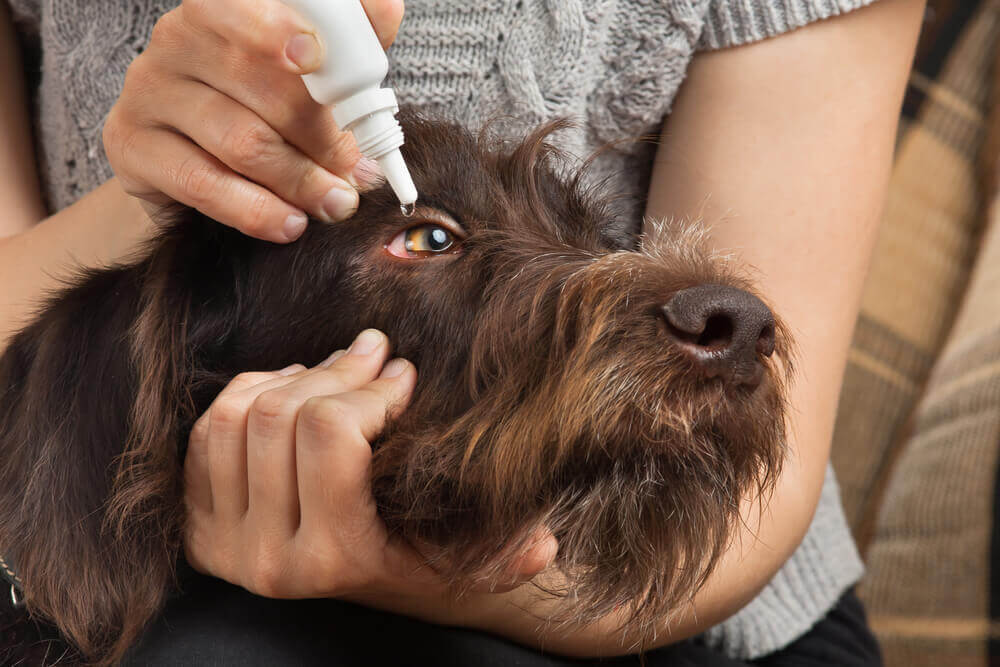
The Internet is great for all kinds of things, including lots of helpful advice about how to care for your dog. However, it can also be a source of some very questionable advice, especially when it comes to 'home remedies' for canine health conditions, including conjunctivitis.
When you take your pup to the vet, they will often treat conjunctivitis with specialist eye drops that might include an antibiotic, a steroid or anti inflammatory eye medication, and/or an antifungal eye ointment usually prescribed for secondary bacterial infections.
Just how they treat the condition will be determined by a thorough examination of the eye - something that is probably awfully hard for most pet parents to even attempt - and in consideration of an underlying causes they might find.
Take Note
There are some serious eye problems that have symptoms similar to those seen in conjunctivitis. It's important to remember not to waste anytime in bringing your pet to the vet.
Some humans try over the counter eye drops to treat pink eye. These are rarely (if ever) effective for them, and they will not be for a dog. As the eye is very delicate, and easily damaged, following odd Internet advice to try something like Visine is never a good idea.
You will even need to be incredibly careful when bathing your pup's eye if you suspect they have conjunctivitis.
As it can spread so easily from one eye to the other, you will need to ensure that you only make use of a very clean, lint free cloth, lukewarm water and take great care to clean only the 'bad eye', and then wash your own hands well immediately afterwards.
How Long Does It Take for Conjunctivitis to Clear up in a Dog?
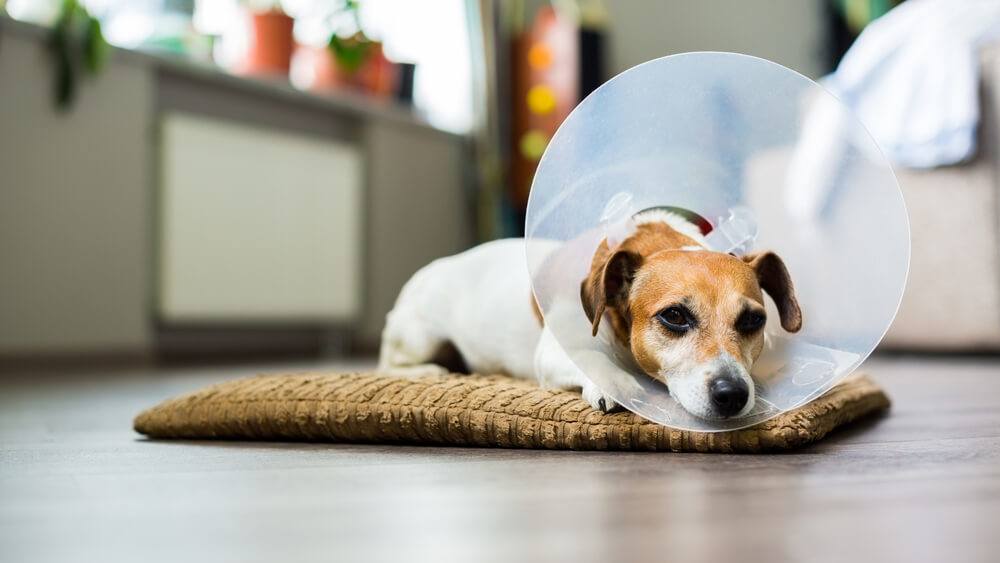
If a dog is prescribed medicated eye drops by their vet to treat their conjunctivitis, it will usually clear up in a few days to a week. Your vet will give you specific instructions on how to care for your pup in the meantime.
These will almost certainly include keeping him away from other dogs - both at home and outside, so no trips to the dog park for a while, and trying to ensure that he is not allowed to scratch at his eyes, which may be itchy.
This might be a tall order, although a dog cone, and maybe even doggie socks, can be a big help.
Is Dog Conjunctivitis Contagious to Humans?
Human to human transmission, and dog to dog transmission, of conjunctivitis is uncommon, but it can happen. But how about dog to human?
A dog can give a human pink eye in rare situations. In the same way, if you have pink eye, it is possible that you will pass the infection on to a close friend.
Although pink eye is not normally contagious, it is still necessary to take precautions to protect your dog, you, and other people, as well as any of your pup's friends.
Keeping Conjunctivitis from Spreading
If you have pink eye, it is critical that you take special precautions to prevent the virus from spreading to others, including your pet.
To avoid transmitting the virus to other surfaces, wash your hands regularly throughout the day. During the healing process, it is important to avoid touching your eyes. If you do happen to touch your eyes, make sure to wash your hands immediately and thoroughly.
If your dog has pink eye, make sure to wash your hands after any contact with the affected area. To avoid skin-on-skin contact when cleaning any discharge from your dog's eye, try using a cotton ball. However, you should always wash your hands afterward.
You should also clean any furnishings that come into contact with your dog's face on a regular basis to help prevent the infection from spreading. You should, however, be safe as long as you practice excellent hygiene and wash your hands frequently.
To prevent pink eye in dogs:
- Regularly vaccinate your dogs against infectious diseases
- Feed your pet allergen-free dog food
- Regularly groom your dogs
- Regularly deworm your pet dogs.
- Where possible, maintain an allergy-free environment for your furry pal

